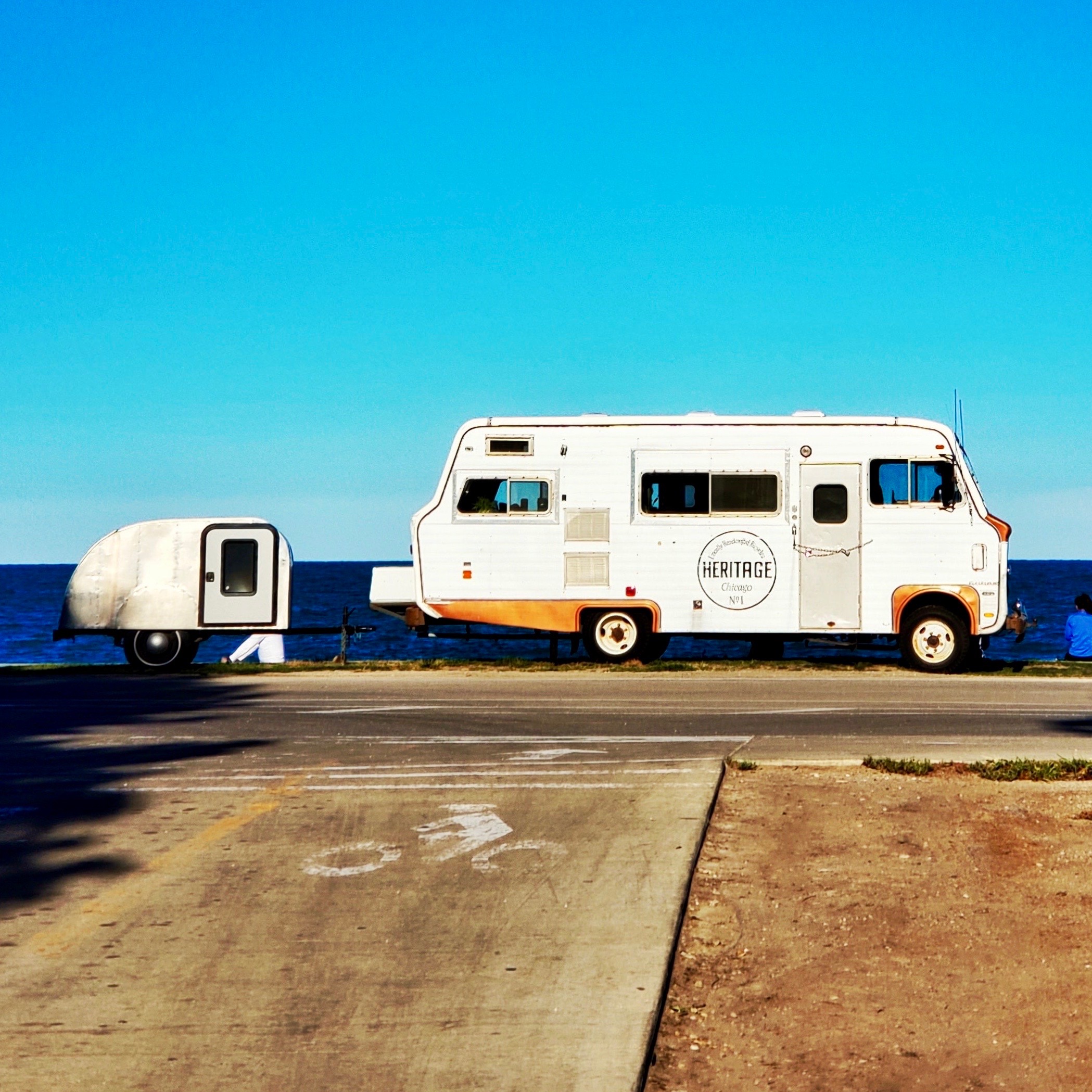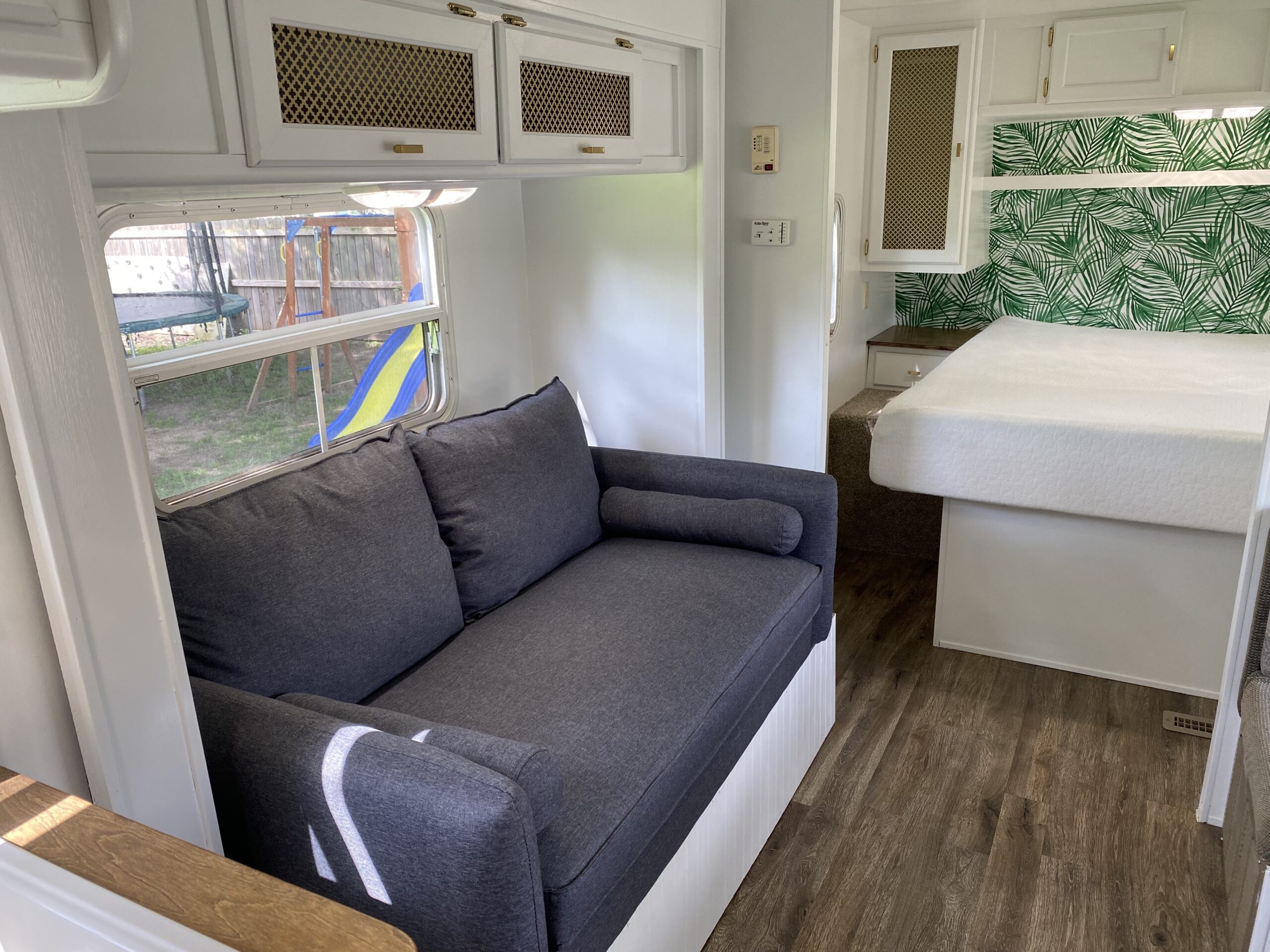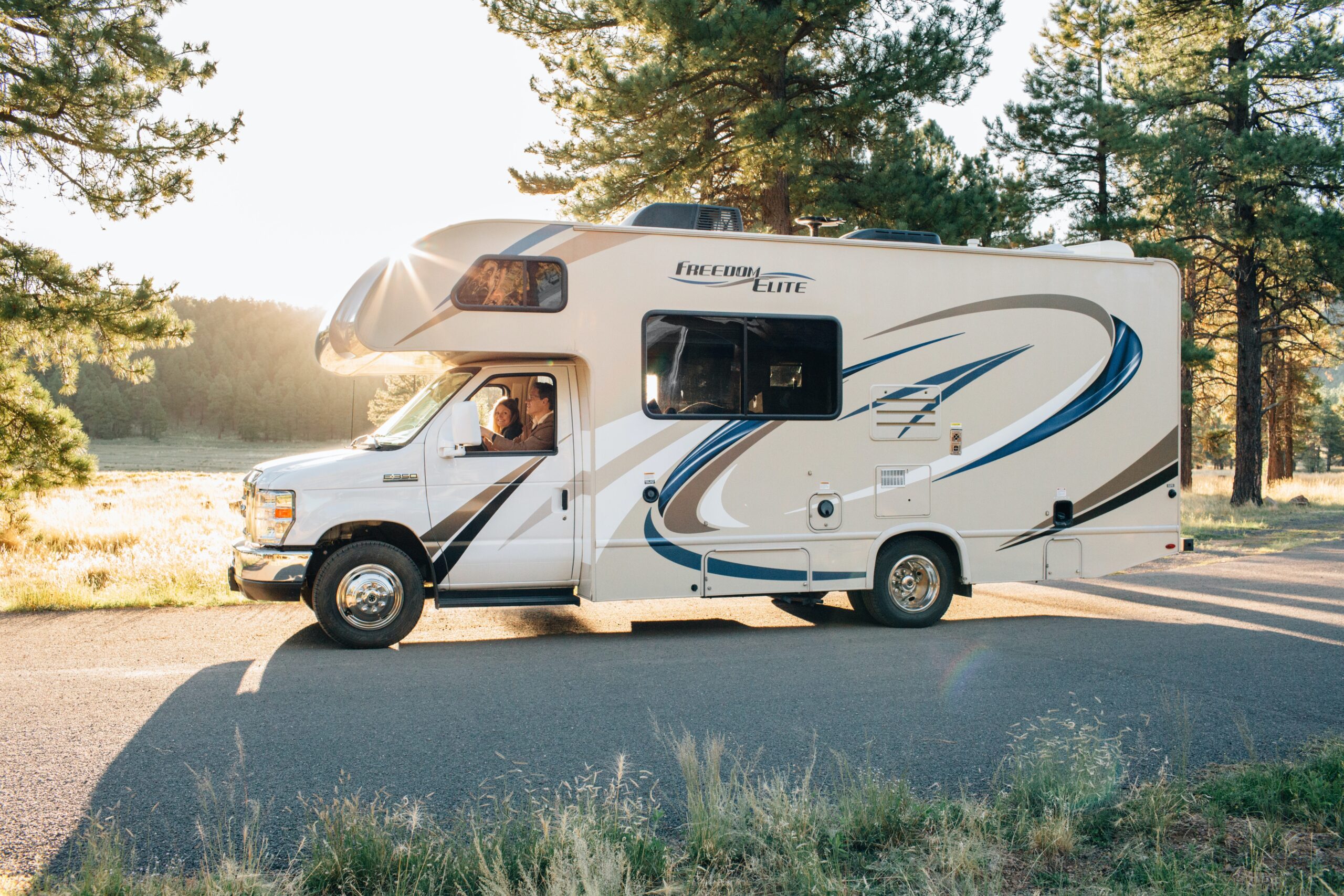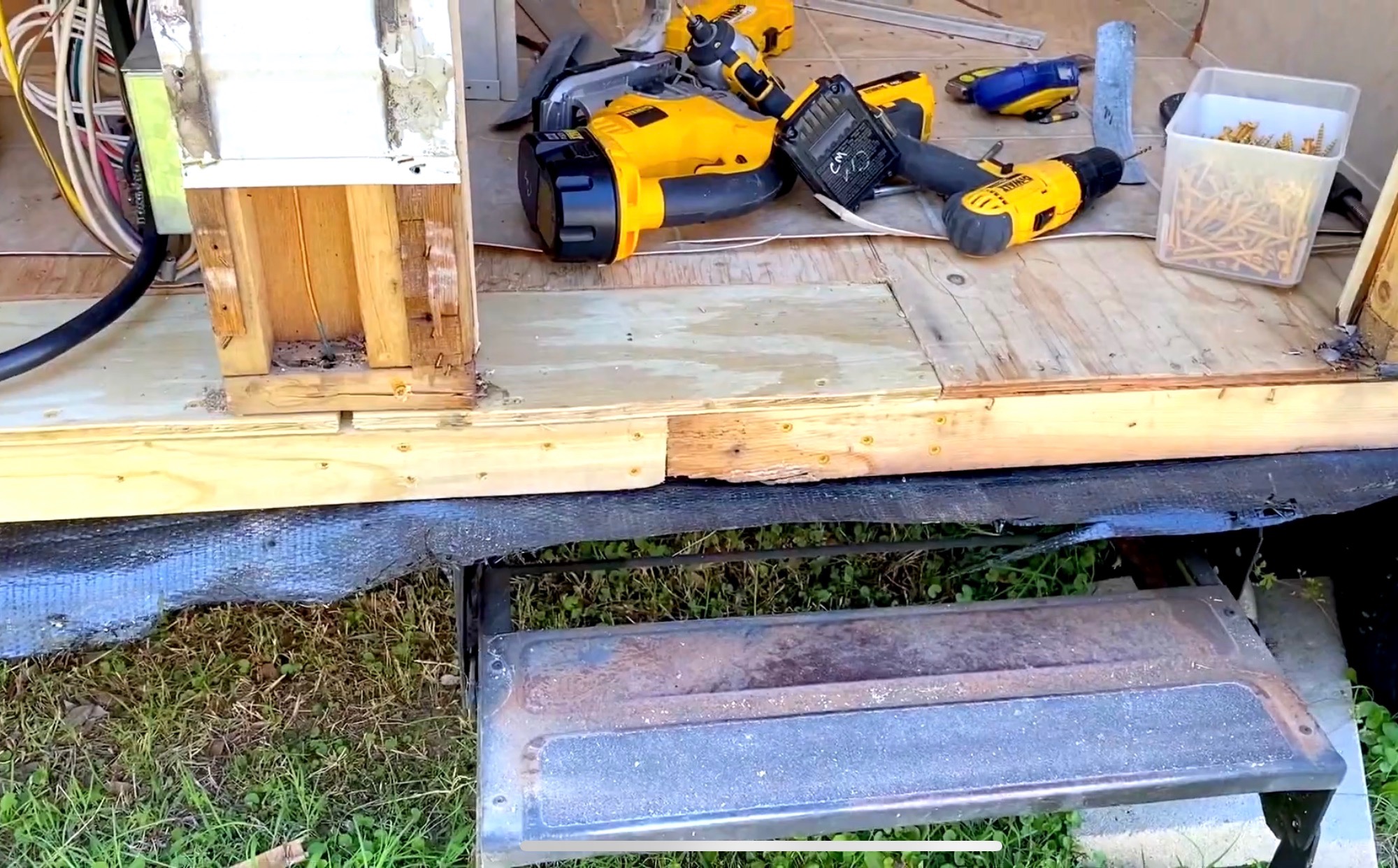Deciding whether to buy an older RV can be a challenging decision, as there are numerous factors to consider such as cost, condition, and potential repairs. Older RVs tend to be more affordable, which can be appealing for those looking to enjoy the RV lifestyle without a hefty price tag. However, it’s important to weigh the potential challenges and expenses that may come along with purchasing a pre-owned vehicle.
To make a well-informed decision, potential buyers should research the history of the specific make and model they are interested in, as well as pay close attention to the overall condition of the RV during the inspection process. This includes features such as plumbing, electrical systems, and the structural integrity of the vehicle. Having a thorough understanding of these aspects can help determine whether an older RV is a smart investment.
Financing an older RV can also be a consideration, as lenders are often hesitant to finance vehicles older than 10 to 15 years. It is essential to explore all financing options and be prepared for alternative payment methods, such as paying cash for the RV, if necessary. By carefully weighing the pros and cons of purchasing an older RV, one can make a well-informed decision about whether this choice is right for their unique situation.
Pros and Cons of Buying an Older RV
Benefits of Buying an Older RV
One major advantage of purchasing an older RV is that they tend to be cheaper than their brand-new counterparts. This is mainly due to depreciation, which affects new RVs more significantly than used ones. Buying an older RV also means that you won’t have to take the financial hit of depreciation, as the previous owner would have already experienced this.
Another benefit of buying a used RV is that many of their initial issues and bugs might have already been worked out, typically under warranty. This means that you may not encounter the same problems that new RV owners sometimes face.
Additionally, older RVs tend to have more information available about them, such as reviews, maintenance advice, and owner experiences. This can help you make a more informed decision about your purchase.
Drawbacks of Buying an Older RV
On the other hand, there are also drawbacks to consider when buying an older RV. For example, financing terms are often less favorable compared to those offered for new RVs. This could result in higher interest rates and larger down payments required for older models.
Older RVs, particularly those with gas engines, may also be less fuel-efficient than newer models equipped with efficient diesel engines. This could result in higher long-term operating costs, particularly if you plan on using your RV for frequent or long-distance trips.
Lastly, older RVs may have more wear and tear than newer models, which can lead to increased maintenance costs or unexpected breakdowns. This is especially true if the previous owner didn’t properly maintain the vehicle.
In conclusion, when considering the purchase of an older RV, it’s essential to weigh the potential benefits and drawbacks. Keep these factors in mind to make the best decision based on your personal preferences, budget, and travel needs.
Inspection and Maintenance of Older RVs
When considering the purchase of an older RV, it’s crucial to thoroughly inspect and understand the maintenance requirements. In this section, we cover key areas to inspect and useful RV maintenance tips.
Key Areas to Inspect
When examining an older RV, there are several crucial aspects to review before making a purchase:
- Water damage: Inspect the walls, floors, and ceiling for any signs of water damage, such as soft spots, mold, or mildew. Water damage can lead to expensive repairs in the future.
- Tires: Check the tires for wear and age, as RV tires typically need to be replaced every 5-7 years, regardless of mileage.
- Roof: Examine the roof for any cracks or leaks, as they can cause severe interior damage if left unaddressed.
- Appliances: Test all appliances, such as the refrigerator, stove, and heating or cooling units, to ensure they are functioning correctly.
- Electrical and plumbing systems: Verify that all electrical components and plumbing systems are in good working order.
You may want to consider getting a professional RV inspection before purchasing an older motorhome.
RV Maintenance Tips
Once you have purchased an older RV, consistent maintenance is necessary to keep it in good condition. Here are a few maintenance tips to ensure your RV stays road-ready:
- Regularly check and seal the roof: To prevent water damage, inspect the roof for cracks or leaks and reseal it as needed.
- Monitor tire pressure and condition: Maintain proper tire pressure and replace tires every 5-7 years, even if the tread appears good.
- Clean and lubricate slide-outs and seals: Keep slide-outs functioning smoothly by cleaning and lubricating them regularly. Inspect seals for damage and replace them as necessary.
- Change oil and filters: Just like any vehicle, change your RV’s oil and filters according to the manufacturer’s recommendations.
- Flush and sanitize the freshwater system: To keep your water supply clean and safe, flush and sanitize the freshwater system periodically.
By thoroughly inspecting and consistently maintaining an older RV, you can mitigate potential problems and costly repairs, ultimately making the purchase of an older RV a smart decision for many.
Types of Older RVs and Brands to Consider
Motorhome Classes
When considering purchasing an older RV, it’s essential to understand the different classes of motorhomes. There are three primary classes to choose from:
Class A
Class A motorhomes are the largest and most luxurious, offering plenty of space and amenities. Older Class A motorhomes from well-known brands like Winnebago and Fleetwood are popular choices for those wanting a high-quality, pre-owned RV.
Class B
Class B motorhomes are also known as campervans. They are smaller and more compact, providing a more fuel-efficient option for those on a tighter budget. Older Class B models from brands like Airstream and Roadtrek can be excellent choices.
Class C
Class C motorhomes offer a balance between the larger Class A and the more compact Class B. They typically have a sleeping area over the cab and can comfortably accommodate families. Older Class C RVs from well-regarded brands such as Jayco and Forest River are worth considering.
Travel Trailers and Fifth Wheels
In addition to motorhomes, you may also want to consider travel trailers and fifth wheels when looking for an older RV. These types of RVs are towed behind a vehicle and offer the flexibility of detaching and exploring without the RV. Some popular brands for travel trailers and fifth wheels include Airstream, Lance, and Grand Design.
Travel Trailers
Travel trailers are versatile and come in various sizes and layouts, catering to different budgets and preferences. They generally provide more accessible storage and towing options than motorhomes. The Airstream brand is well-known for its iconic, high-quality travel trailers.
Fifth Wheels
Fifth wheels attach to a truck’s bed using a special hitch, providing a more stable towing experience than travel trailers. These RVs tend to be more spacious and luxurious, with brands like DRV and Heartland producing reputable fifth wheels.
Popular RV Brands
When shopping for an older RV, looking for reputable brands is essential to ensure longevity and resale value. Some popular RV brands with a history of producing reliable, long-lasting vehicles include:
- Airstream
- Winnebago
- Jayco
- Tiffin
- Forest River
- Grand Design
- Coachmen
- Lance
In conclusion, when selecting an older RV, consider the various types and brands available. By taking your preferences, budget, and lifestyle into account, you can find the perfect older RV to meet your needs and create lasting memories on the open road.
Factors to Consider While Buying an Older RV
Miles and Engine Condition
One of the primary factors to consider while purchasing an older RV is the miles on the odometer and the overall engine condition. A higher mileage RV may require more maintenance and have a shorter remaining lifespan. Check the RV for any leaks or excessive wear, as these could indicate potential issues. Remember, a well-maintained older RV might still be a better investment than a newer one with more miles or problems.
Previous Ownership and Maintenance History
Investigating the previous owner and maintenance history of an older RV can provide valuable insights into its condition. A well-maintained RV that has been regularly serviced can be more reliable and require fewer repairs in the future. Ask the seller for service records and inquire about any problems or repairs the RV has undergone. Additionally, consider any obvious signs of neglect, such as stains or odors, because these can be red flags when buying a used RV.
Towing Capacity and Vehicle Compatibility
Lastly, consider the towing capacity of your current vehicle and the compatibility of the used RV. Depending on the brand and model, some RVs may require a more powerful towing vehicle, such as a Ford truck, for safe transportation. Check the RV’s towing specifications and ensure that your vehicle can adequately handle the weight. This consideration is especially important if you plan to tow the RV long distances or across challenging terrain. Best of luck in your search for an older RV that suits your needs and offers value for your investment!
Where to Buy Older RVs
Dealerships versus Private Sellers
When considering buying an older RV, it’s essential to weigh the pros and cons of purchasing from either a dealership or a private seller. Dealerships provide a diverse selection of used motorhomes and sometimes offer financing options, but they may also charge higher prices. On the other hand, private sellers may offer lower prices, and you may have the opportunity to negotiate. However, buying from a private seller usually means having to rely on their word for the RV’s condition. Make sure to inspect the RV thoroughly before making a purchase from either party.
Online Resources and Marketplaces
The internet has made it easier than ever to find older, used RVs for any budget. Several websites can help you with your RV shopping journey:
- RVTrader: A popular online marketplace dedicated to RVs, featuring listings from both dealers and private sellers.
- RVT: Similar to RVTrader, RVT offers a wide selection of RVs from dealers and private sellers across the United States.
- Craigslist: A versatile resource for finding older RVs locally, at potentially lower prices. Exercise caution and always inspect the RV before buying.
- Facebook Marketplace: A social media platform offering a marketplace where users can buy and sell items, including used RVs. Be cautious when using this platform and always verify information before making a purchase.
- YouTube: Not a direct marketplace, but a great resource for researching older RV models and watching walkthrough videos to get a feel for what the RV might be like.
Remember to inspect potential RVs thoroughly and reach out to multiple sellers to ensure you’re getting the best deal possible. Happy RV hunting!
Hidden Gems: Vintage and Renovated RVs
The Appeal of Vintage Campers
Vintage campers have a unique charm and style that is hard to find in modern RVs. They often feature classic designs, vibrant colors, and unique layouts that can make your camping experience feel nostalgic and peaceful. Many people are attracted to the idea of owning a piece of history, and these older RVs represent a simpler time in the world of travel.
However, there are some challenges associated with purchasing a vintage RV. Many older models may have significant wear and tear, requiring extensive renovations to make them roadworthy and comfortable. It’s important to be prepared for these additional costs and efforts when considering a vintage camper. For example, some vintage RVs might have rotten floors and walls, unreliable gas lines, and punctured exteriors, which can add up quickly in repair expenses.
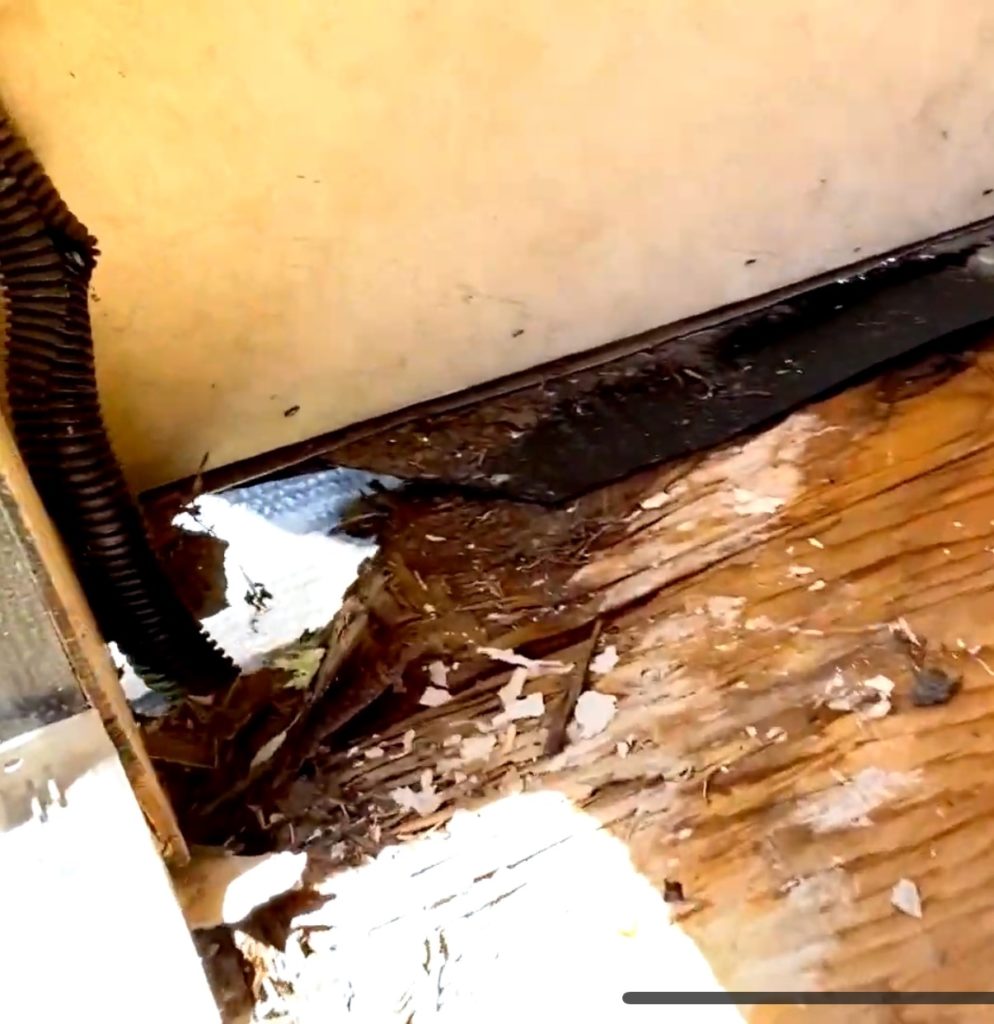
On the other hand, renovating a vintage RV allows you to personalize it to your liking and give it a modern touch, making it an enjoyable and unique space for your travels.
Renovated RV Options
If you decide to purchase a used RV that’s been renovated, you can get the best of both worlds: a classic, vintage look with modern amenities and functionality. Renovated RVs tend to be more comfortable and road-ready than their non-renovated counterparts, so they can be a good option for someone who wants to hit the road without the hassle of undergoing a full-scale renovation.
Before purchasing a renovated RV, it is essential to have a clear understanding of your budget and the amount of work you’re willing to put into it. A 20-year-old RV might be more affordable but may also need substantial and costly renovation, whereas a 5-year-old rig might require less renovation time and cost, but be a larger upfront investment.
When selecting a renovated RV, you’ll want to focus on quality renovations and proper maintenance. Ensure the upgrades have been done professionally, and all systems, such as electrical, plumbing, and heating, are in good working order.
To summarize, both vintage campers and renovated RVs provide unique living and travel experiences. The right choice for you comes down to your personal preferences, budget, and the amount of work you’re willing to put into your RV journey. Just remember, with a little effort and creativity, your RV can transform into a one-of-a-kind home away from home.
Preparing and Adjusting to RV Life
Safety and Essential Skills
When entering the world of RV ownership, safety should be a top priority. It is crucial for new owners to familiarize themselves with their motor home and invest time in learning essential skills for a safe and comfortable RV life. This includes understanding the vehicle’s mechanics, reading the owner’s manual, conducting regular maintenance checks, and getting hands-on practice with driving and maneuvering the RV.
Additionally, being prepared for emergencies is vital. Ensure that a well-stocked first aid kit, tool kit, and fire extinguisher are on board, and consider taking a basic first aid or RV maintenance course. Enrolling in a defensive driving class can also prove helpful in preventing road-related incidents.
Finding and Selecting Campsites
Choosing the right campsite is an important aspect of the RV life experience. When searching for campsites, consider factors such as location, amenities, and budget. Some resources to check for campsite recommendations include online directories, RV forums, and fellow RV owners.
There are a variety of campsite options to choose from, ranging from private campgrounds with full hookups to public lands offering free or low-cost dry camping (also known as boondocking). When selecting a campsite, consider proximity to activities and attractions of interest, safety, and security of the area, and the desired level of socialization with fellow RVers.
Winterizing Your Older RV
As an older recreational vehicle owner, properly winterizing your RV is key to prolonging its lifespan and ensuring a comfortable winter living experience. Winterizing involves preparing the vehicle’s plumbing and heating systems, insulating the interior, and taking measures to prevent moisture and condensation buildup.
Begin winterizing your RV by draining and treating the water system to prevent freezing and potential damage. Inspect weather seals, windows, and doors for gaps, and apply the necessary sealing materials. Insulate vulnerable components like pipes, tanks, and slide-out seals with pipe and vent insulation or heat tape.
Invest in a quality space heater and use window coverings, like thermal curtains or insulated shades, to help maintain a comfortable interior temperature. Lastly, ventilate your RV to reduce humidity levels and maintain healthy indoor air quality.
By prioritizing safety and essential skills, researching and selecting suitable campsites, and properly winterizing your older recreational vehicle, you can make the most of your RV life experience and fully enjoy the freedom and adventure it offers.
Conclusion
In the end, the decision to buy an older RV comes with its own set of advantages and disadvantages. On the one hand, purchasing a used RV can lead to significant cost savings, as the initial depreciation has already occurred, and the overall purchase price will be lower than that of a brand-new unit.
However, older RVs may come with their fair share of issues. For example, some vintage RVs may have rotten floors, walls, or unreliable gas lines, which means additional costs for repairs and refurbishments.
Moreover, an older RV could have hidden problems that are not immediately apparent, such as brittle wiring or internal damage. Additionally, financing a vintage RV can be challenging, as most lenders are hesitant to provide loans for units older than 10-15 years.
When considering the purchase of an older RV, it’s essential to conduct thorough research and inspections. Doing so will ensure that the buyer is fully aware of any potential issues and can make an informed decision on whether the cost savings outweigh the potential repair expenses.
In summary, buying an older RV can be a smart decision if the buyer is prepared for the possible challenges and costs associated with refurbishing and maintaining a not-so-new unit. When done correctly, a used RV can provide an affordable and enjoyable way for individuals and families to experience the RV lifestyle.

